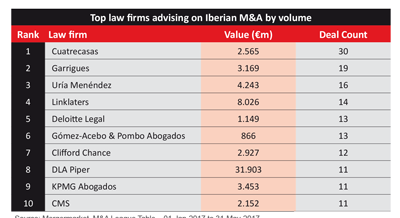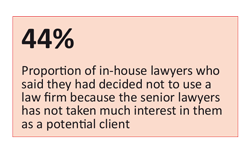´Solar decade’ in jeopardy due to client worries over licences
Lawyers say next ten years will generate considerable work in the solar energy sector, despite renewable energy auction in Spain controversially favouring wind power
Despite German Chancellor Angela Merkel’s recent calls for Spain and Portugal to invest more in solar energy and forge a better link with France as part of a drive for a European power grid, lawyers in Iberia says concerns about licences and permits for new solar plants could be an obstacle to such proposals.
“I don’t see why Spain wouldn’t respond to Angela Merkel, but not because of her asking for it, but because it’s in the interest of Spain,” says Íñigo del Val, partner at Allen & Overy in Madrid. However, lawyers say that, while regulatory uncertainty has not helped the cause of solar power in Iberia, there are now new concerns for investors in the solar sector. In 2008, as a result of the crisis, the Spanish government slashed its generous subsidies for solar power producers – these subsidies offered such companies rates for renewable energy that were above the market price and which were guaranteed for the lifetime of installations. However, Del Val thinks that any uncertainty around potential changes in tariff regulations has instead been replaced with concerns around licences and permits for new plants. “Investors need substantial advice to understand the system and how it works,” he explains.
However, in the last decade, transactions in the renewables sector have generated significant work for law firms in areas such as regulatory, banking, projects, M&A, labour and tax, and Del Val believes this trend is likely to continue. “I think there is a favourable political and regulatory environment for renewable energy and solar, particularly in Spain,” he says. “This sector will definitely form a significant part of our business in the future.”
Must be bankable
With the recent renewable energy auction in Spain controversially favouring wind over solar, Raimundo Ortega, partner at Jones Day, argues that in the short-term, it looks like only wind power projects will be developed under the current regime. However, that said, Ortega adds: “This does not mean that photovoltaic plants won’t be developed in Spain. In fact, we have heard of sponsors willing to invest in PPA schemes, provided these are bankable.”
Meanwhile, in Portugal, given heavy criticism of the country in the past for lacking significant solar production, Mónica Carneiro Pacheco, partner at CMS Rui Pena Arnaut in Lisbon, hopes that Portugal will respond to calls for it to boost its solar energy supply. However, she adds that solar power has experienced more significant growth in the last decade compared to more traditional power sources. “The feeling in the sector is that the next decade will be the solar decade,” she says. Manuel Andrade Neves, partner at Abreu Advogados in Lisbon, believes solar power has moved on from the crisis and the related dip in investor confidence. He adds: “Technology has evolved in the last five years, costs have significantly dropped and efficiency has greatly increased.”
Vanda Cascão, partner at VdA Vieira de Almeida, says further investment largely depends on the outcome of ongoing solar projects at home and abroad and hopes that recent technological advances “allow for the skipping of entire development phases to enable more projects with less investment”. However, Andrade Neves argues that it is not just Spain and Portugal that need to be proactive in order to improve the Iberian Peninsula’s power connection with France, but also the remaining EU member states. “It very much depends on their efforts to finalise a revised Renewable Energy Directive that breaks down the said barrier as well as other financial and non-financial barriers to PV projects,” he says.
Furthermore, for a sector dependent on long-term stability and confidence, lawyers say there are other barriers to more investment in solar energy, such as grid connection and market conditions, as well as a lack of investment in reinforcing the transmission lines from Iberia to France. Meanwhile, Cascão adds that “regulatory uncertainty such as the retroactive cuts in tariffs in Spain have not helped”.
Yet, despite the current environment, lawyers anticipate that the next decade will generate a significant amount of work related to solar projects. Andrade Neves says the conversion of wind and small-hydro power plant projects into solar projects – combined with the struggle for market share between the major utilities – will bring “a natural source of legal work”.












